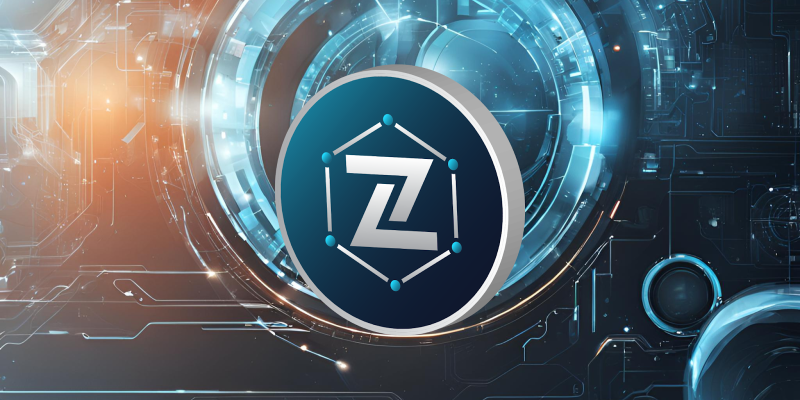 |
|
 |
|
 |
|
 |
|
 |
|
 |
|
 |
|
 |
|
 |
|
 |
|
 |
|
 |
|
 |
|
 |
|
 |
|
Cryptocurrency News Articles
Indian Crypto Industry Steps Up with Self-Regulation, Safeguarding Investors and Market
Apr 19, 2024 at 08:44 pm
The Bharat Web3 Association (BWA) has released guidelines for crypto exchanges to follow when considering listing new altcoins. These guidelines aim to reduce the risk of scam tokens entering India's crypto ecosystem. The PEC framework, which focuses on investor protection, market efficiency, and safeguards, serves as the foundation for these self-regulatory guidelines. Exchanges must carry out a primary screening process, verifying whether tokens adhere to Indian regulations and aren't linked to potentially harmful projects.

Indian Crypto Industry Self-Regulates, Enhancing Safety and Investor Protection
In a significant move to foster a safe and secure crypto ecosystem in India, the Bharat Web3 Association (BWA) has introduced comprehensive guidelines for crypto exchanges. These guidelines establish a robust framework for listing new altcoins, reducing the risk of scam tokens infiltrating the market and safeguarding the interests of investors and traders.
BWA Guidelines: Ensuring a Transparent and Secure Ecosystem
The self-regulatory guidelines are meticulously crafted based on the PEC framework, prioritizing investor protection, market efficiency, credibility, and safeguards. Over 36 Web3 firms, members of the BWA, have contributed their expertise in formulating these guidelines, which are divided into two distinct categories: Essential Metrics and Indexed Metrics.
Essential Metrics: Establishing a Robust Screening Process
Under the Essential Metrics, crypto exchanges are tasked with implementing a stringent primary screening process. Exchanges are directed to establish minimum standards for reviewing tokens under consideration for public listing. This involves verifying that the tokens and their associated projects adhere to Indian regulatory guidelines and are not associated with potentially risky ventures.
Exchanges are also required to gather and analyze comprehensive information on the tokens to ensure compliance with applicable laws. They must harness blockchain analytics tools provided by third-party experts to thoroughly assess the authenticity and integrity of the assets.
Indexed Metrics: Creating a Customized Filtering Framework
The second category, Indexed Metrics, empowers exchanges to develop their own filtering frameworks for token listing. Exchanges are advised to meticulously review white papers, project roadmaps, and the technological underpinnings of new tokens. To mitigate disasters similar to the FTX collapse, they are urged to assess liquidity levels across major international platforms.
Additionally, crypto exchanges operating in India must officially announce token listing dates in advance, ensuring transparency and allowing the community to make informed decisions.
Industry Commitment to Fair and Sustainable Growth
Dilip Chenoy, Chairman of BWA, affirmed, "These guidelines underscore our dedication to fostering a fair, transparent, and secure ecosystem for virtual digital assets. By standardizing the listing process, we aim to educate stakeholders about token listing, bolster market confidence, protect investors, and drive sustainable growth in the Web3 domain."
Government Collaboration: Leveraging Regulatory Oversight
The Indian government has been proactively implementing regulations to mitigate financial risks within the crypto sector. As part of these efforts, all crypto exchanges operating in India are now required to register with the Financial Intelligence Unit (FIU).
Conclusion: A Brighter Future for Crypto in India
The self-regulatory guidelines introduced by the BWA represent a significant milestone in the development of the Indian crypto industry. By adhering to these guidelines, crypto exchanges can proactively screen and list tokens, minimizing the potential for fraudulent or deceptive activities. This concerted effort enhances investor protection, fosters market confidence, and lays the foundation for a thriving and sustainable Web3 ecosystem in India.
Disclaimer:info@kdj.com
The information provided is not trading advice. kdj.com does not assume any responsibility for any investments made based on the information provided in this article. Cryptocurrencies are highly volatile and it is highly recommended that you invest with caution after thorough research!
If you believe that the content used on this website infringes your copyright, please contact us immediately (info@kdj.com) and we will delete it promptly.
-

-

-

-

-

-

-

- ZacroTribe (ZACRO) Is Positioning Itself as the Next Big Thing in the Decentralized Financial Insights Space
- Mar 09, 2025 at 08:50 am
- The crypto market is constantly changing with new developments arise to rival traditional financial infrastructure. As top players like Solana (SOL) and XRP grab headlines, a lesser-known low-cap coin, ZacroTribe is positioning itself as the next big thing in the decentralized financial insights space.
-

-




























































